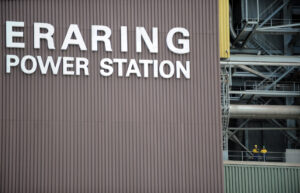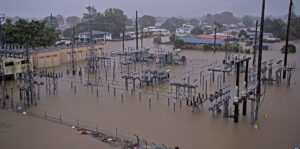The latest quarterly greenhouse gas emissions survey shows that Australia is heading in the wrong direction – and that needs calling out.
The latest Quarterly Greenhouse Gas Emissions data came and went last Friday with little coverage. As Policy Director, Greg Jericho writes in his Guardian Australia column this meant that much of the terrible news was missed.
In the past year, Australia’s greenhouse gas emissions have increased with the rise in transport emissions undoing any of the good that comes from falling emissions out of the electricity sector. At a time when we should be on a clear path to reducing emissions by at least 43% below the 2005 level by 2030, we are heading in the opposite direction.
The figures also highlight the weakness of our 2030 target. The only reason we are even halfway to achieving that cut is because Australia includes land use in its calculations. Without including the faux cuts in emissions that come from using 2005 and the massive land-clearing that occurred that year as a baseline, Australia’s emissions would be just 1.6% below 2005 levels.
Next week the June quarter GDP figures will be released. We know exactly when they will be released and they will receive massive coverage, including a press conference by the Treasurer soon after 11:30am on Wednesday. By contrast, the quarterly greenhouse gas emissions data is released at random times with now warning and without any minister fronting media to discuss, explain and defend the government’s policies.
We need to treat the greenhouse gas emissions release with the same level of attention we give to GDP, and we need to demand what the government is doing to ensure in 3 months time with the next release the figures will show a fall, rather than a rise.
You might also like
Dutton’s nuclear push will cost renewable jobs
Dutton’s nuclear push will cost renewable jobs As Australia’s federal election campaign has finally begun, opposition leader Peter Dutton’s proposal to spend hundreds of billions in public money to build seven nuclear power plants across the country has been carefully scrutinized. The technological unfeasibility, staggering cost, and scant detail of the Coalition’s nuclear proposal have
A smooth move or a tough transition? Protecting workers who’ll lose their jobs when the Eraring Power Station closes
The Centre for Future Work at The Australia Institute has urged the federal government to take charge of transitioning hundreds of workers into secure employment when the Eraring Power Station shuts down.
Climate crisis escalates cost-of-living pressures
A new report has found direct connections between the climate crisis and rising cost-of-living pressures. Failure to lower emissions now will only aggravate the crisis, with each moment of inaction compounding the pressure on households.



